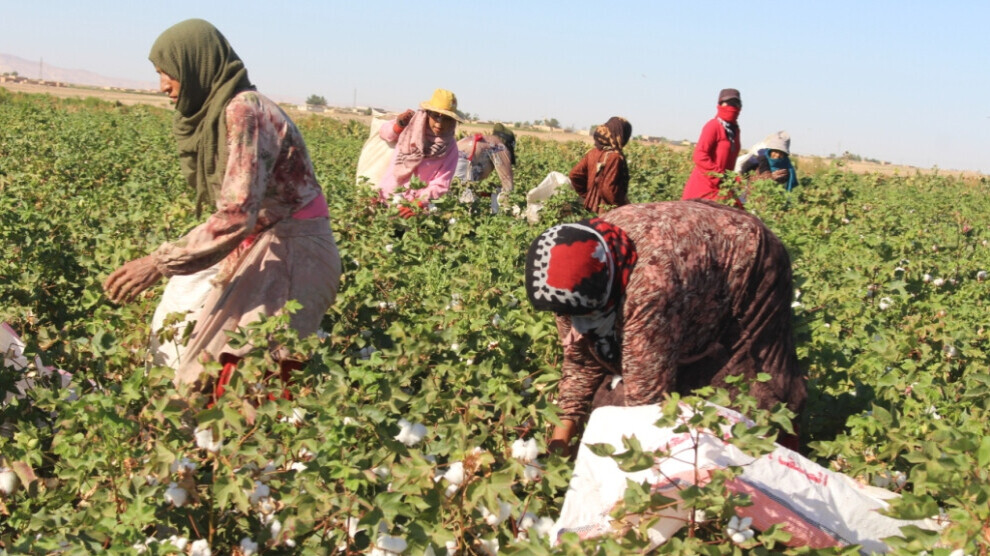Cotton Harvest Begins in Hesekê
In Hesekê, part of the Cizîr Canton of North and East Syria, one of the most important centers of agricultural production, the cotton harvest has begun.

RONÎDA HACÎ
Hesekê – With the cool autumn air and gentle breeze, the collective cotton harvest has started in the fields of Cizîr Canton in North and East Syria. In the village of Til Necma in Hesekê, women continue harvesting cotton in a communal manner.
Known in the region as the “white gold,” cotton is one of the most important agricultural and economic products of Cizîrê Canton. Although it has been negatively affected by the drying up of the Xabûr River, producers continue planting it.
‘Women live off agriculture’
One of the women in the fields, Nûra Elî Seyîd, stated that agriculture is the only source of livelihood for women in the region, saying: “Cotton cultivation was very important for us, but in recent years, with the decrease in water, production has declined. This has negatively affected our labor. We want the Xabûr River to flow again, because when the water dried up, our region was left barren.”
Nûra Elî Seyîd explained that they work in the fields from early morning until evening and want to receive fair compensation for their efforts.
Fifty-three-year-old Asiya El-Atwî said that she has been picking cotton since her childhood. She expressed: “Agriculture began with the labor of women. Without women, this work cannot continue. The drying up of the Xabûr River has reduced cotton production, and this directly affects our labor force.”
‘Xabûr is being used for Turkey’s interests’
Stating that cotton is very important for fabrics, oil, and many other products, Asiya El-Atwî emphasized that production should be supported, adding:
“Cotton is a very beneficial product. Its production must be preserved, and farmers and workers should be supported. We want cotton to be sold at a good price so that both farmers and laborers can benefit.”
Highlighting that water scarcity is caused by Turkey’s policies, Asiya El-Atwî demanded an end to this situation.
